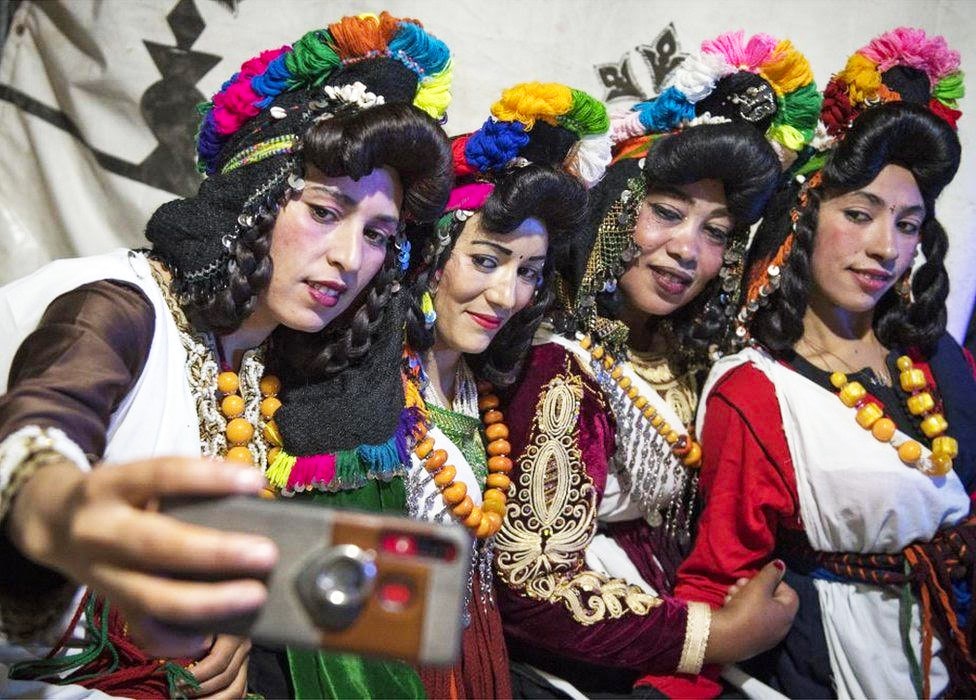The Amazigh people, the Indigenous population native to North Africa, have a rich cultural heritage that is integral to North African history. Despite their long-standing presence, however, the Amazigh people have often been marginalized and discriminated against, particularly under colonial rule and Arabization efforts. As recently as last year, Morocco a country which does recognize Tamazight (Amazigh language) as an official language since the 2011 constitution, affirmed that it would not include the native language on government IDs, citing ‘technical challenges’.
One of the recurring misconceptions within the Amazigh community is that expressing their Amazigh identity puts them at odds with their Arab-identifying counterparts. This belief stems from a fear of conflict when interacting with Arabic-speaking peoples from other countries in the MENA region. Well-known Moroccan Islamic Scholar, Hassan El-Katani, once said; “What prevents peoples from reclaiming their pre-Islamic festivals and traditions is that we lose the factor of our unity, and the future of our children is wasted.” Along with historical pan-Islamist ideas, many Amazigh people have chosen to identify as Arab to avoid the very conflicts imposed by those who see the world through a purely Islamist Lens.
What more Amazigh people must know, is that they are not alone in their struggle for
recognition, the conflict-riddled Middle East, like North Africa, is home to a diverse range of groups, on ethnic, linguistic, and religious grounds, all of whom have suffered from similar political marginalization. The Maronites of Lebanon and their quest to preserve Lebanon’s native identity in the civil war of 1975, the Alawites in Syria, and their clinch to the Arab regime, to protect their religious status in the Sunni majority Syria, and Iraq, the Assyrian-Chaldean- Suryoyo peoples, have faced significant challenges at the hands of both Sunni and Shia militias, that have sought to overtake their lands by force.
Like Christian, Yazidi, and other non-Muslim populations, Amazigh people have been
marginalized and discriminated against during the period of Islamization, facing restrictions in learning their language, in favor of learning Arabic, the language of the Koran. Other cultural and religious practices that pre-dated Islam were also prohibited, such as Imazighen’s cultural tolerance of women having leadership roles in society, something that Islam does not share.
The Amazigh experience historically under Arab rule, resembles that of a ‘Dhimmi’ a term reserved for non-Muslim religious minorities, living under Islamic rule, who had to pay a special tax due to their differences and were also barred from holding public offices. Today in minority politics in the Middle East, the term dhimmi is often used to refer to politicians of minority backgrounds that collaborate or appease Islamists in favor of immediate security concerns and an acceptance of the unjust reality imposed.
In the Western half of North Africa, the Amazigh people hold a popular majority, according to the Unrepresented Nations and Peoples Organization, there are approximately forty million Amazigh speakers worldwide. In the Amazigh community, there is a wide spectrum range of social identity expressions based on the level of Arabization within their families and communities. While Amazigh people may not be a minority in their native land, they are certainly a minority when considering the broader Arab environment.
The plight of defending the rights of minorities, and defenseless civilians struggling for their rights to speak freely, worship freely, and be themselves, is righteous, a cause which the Amazigh people may have the numbers to hold together for generations, for both themselves and their neighboring peoples in struggle for indigenous liberation.

